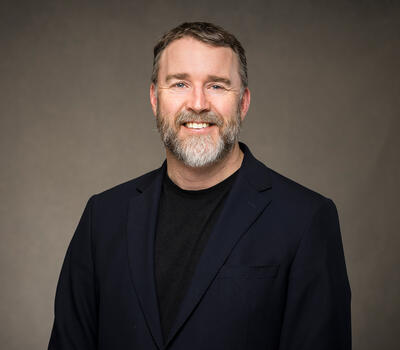
Serendipity, hard work and a call out of the blue from a favorite professor — all contributed to Ted Brekken’s career as a renewable energy researcher.
But the initial hook into energy research was one you may not expect. Music.
A guitar playing teenager growing up in Devils Lake, North Dakota, Brekken played hard rock and metal music with his friends. And when it came to deciding on a career path, he aimed to combine his dual interest in electrical engineering and music by pursuing a career designing audio equipment for guitars. But a course on electric motors at the University of Minnesota got him interested in power issues instead.
In another turn of events, his wife convinced him to take a semester to study abroad. He admits to being reticent initially, but says the exchange program to Korea was “an awesome experience.” He was placed in a graduate student lab where he worked on electric car motors sparking his interest in sustainable energy.
Back in the US he began searching for jobs with renewable energy companies when a call came from the professor who first introduced him to electric motors — he wondered if Brekken would consider graduate school. And although he hadn’t even thought about it before, he says his experience in Korea primed him to say, ‘yes.’
Now the co-director of the Wallace Energy Systems and Renewables Facility at OSU, Brekken is working to advance wind and wave technologies, energy storage and the large-scale integration of renewable energy onto the grid.
“I am hoping to remove obstacles that are preventing us from using more renewable energy,” Brekken says. “The wind may not be blowing when we have an immediate energy need, such as heating our home, so we have to take a variable resource and make it match our energy needs.”
"I enjoy teaching to the general public and I feel very lucky to be in a position where I can share information about how we use energy and how the grid works because it’s a critically important issue for people to understand — energy is the single biggest driver of our standard of living."
But he hasn’t abandoned music — he still plays whenever he gets the chance (“after the kids have gone to bed,” he says) — and finds it a useful hook to introduce electrical engineering topics for his students.
“We might be talking about a particular kind of power electronics converter that effectively amplifies the signal just like a power amp would amplify a guitar — it’s a copy of the signal, but at much higher power,” he says.
Brekken’s inspirational teaching and outstanding research have been recognized through prestigious awards such as the Early Career Development award from the National Science Foundation and the Outstanding Young Engineer award from the IEEE Power and Energy Society, a branch of the world’s largest engineering association.
He also values his role as an educator in the community, lecturing at several venues that are open to the public such as the Corvallis-Benton County Library and Linn-Benton Community College.
“I enjoy teaching to the general public and I feel very lucky to be in a position where I can share information about how we use energy and how the grid works because it’s a critically important issue for people to understand — energy is the single biggest driver of our standard of living,” Brekken says.
Although he says his interest in math and electrical engineering could have taken him in many different directions he is gratified to have found his niche in renewable energy.
“The combination of hard work and good fortune has brought me to a position where I feel like I’m doing something that’s useful for the world that my kids will inherit. There’s a lot of really big environmental and energy challenges that are coming their way, and I can go to bed at night thinking that I have played some part in moving a little bit closer to society that’s sustainable,” he says.
—By Rachel Robertson

